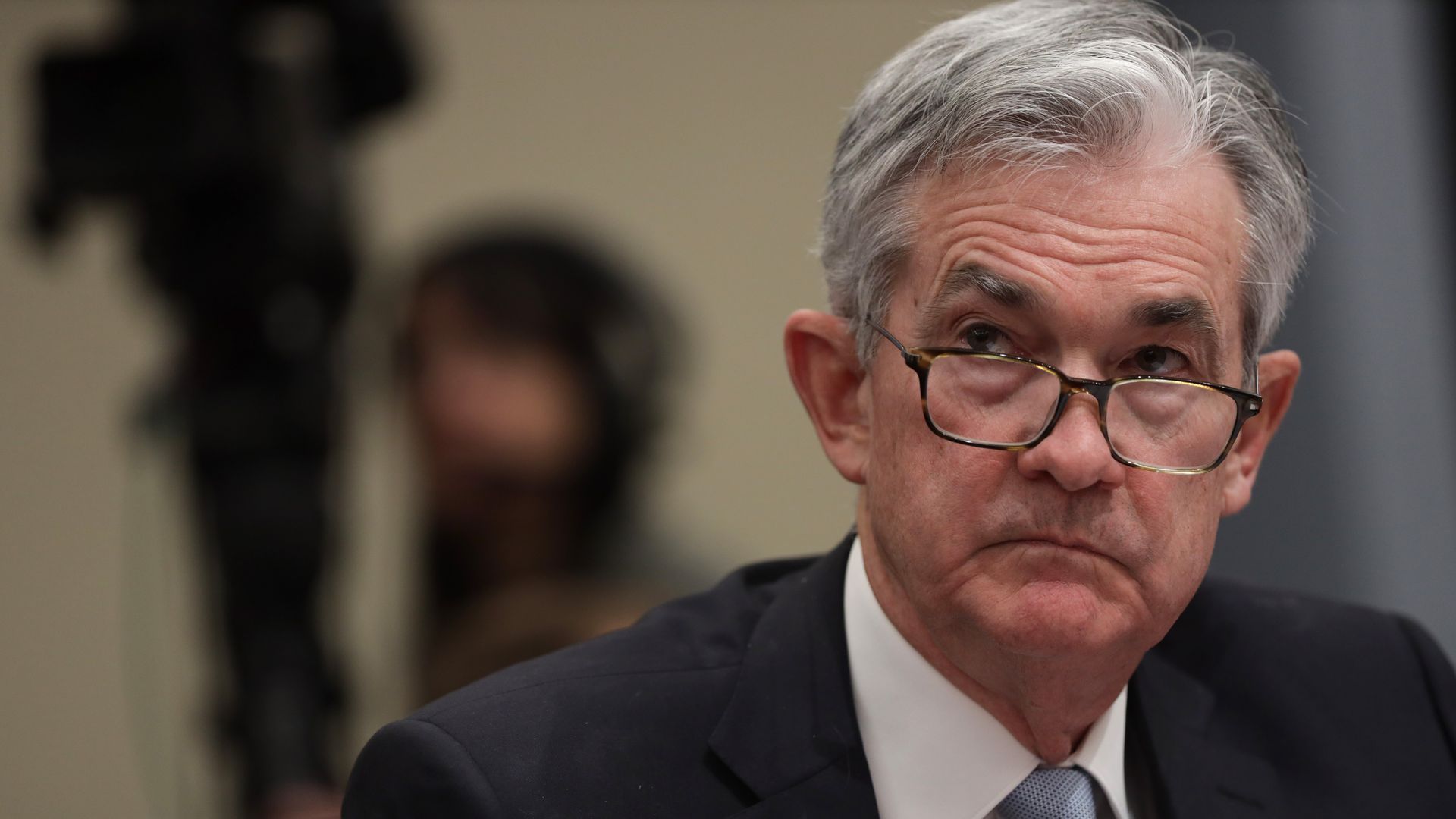Powell and the risk-off bull market
Add Axios as your preferred source to
see more of our stories on Google.

Jerome Powell. Photo: Alex Wong/Getty Images
The Fed’s 180-degree turn was the story of 2019, asset managers and market analysts say.
What happened: Chairman Jerome Powell and the U.S. central bank went from raising interest rates for a fourth time at the close of 2018 and giving market watchers the explicit expectation this would continue in 2019, to doing the opposite. The Fed cut rates thrice and even began re-padding its balance sheet in the last quarter of the year, bringing it back above $4 trillion.
- "This has been a major factor underpinning markets," Quincy Krosby, chief market strategist at Prudential Financial, tells Axios.
- "The important lesson learned is that regardless of valuations or growth trends, the policy backdrop — be it monetary, fiscal or other — can have a significant impact on financial markets," Ed Perks, CIO of Franklin Templeton Multi-Asset Solutions, adds.
Why it matters: With an accommodative Fed at its back, the S&P 500 jumped 30%, its best year since 2013 and among the strongest in recent history.
- "One can conclude that the Fed is nimble," John Doyle, VP of dealing and trading at Tempus, tells Axios. "But you could also argue that they are watching equity prices and may even be bending to political pressure from Trump’s Twitter account."
- The Fed's reversal prompted other central banks around the world to follow suit and what was supposed to be the year of quantitative tightening turned into widespread global policy easing.
The big picture: In 2019, just about everything delivered gains. Elliot Trexler, CIO of Global Return Asset Management, says his firm generated a 42% return while maintaining an average cash balance of 20% all year.
Yes, but: As Jim Paulsen, chief investment strategist of the Leuthold Group, points out, the bull market was a strange one, with the U.S. stock market led higher by typically defensive investments like high-dividend stocks, consumer staples and utilities.
- Traditional safe havens like gold and municipal bonds also performed well, with munis recording all-time high cash inflows and equity funds seeing record outflows.
- "I have never witnessed a ‘risk-off’ bull market — one driven not by optimism, but by a chronic fear of a collapse and recession most of the year," Paulsen says. "It wasn’t FOMO which led one of the strongest stock market years ever ... it was FEAR!"
Go deeper: The market will need the Fed again in 2020
